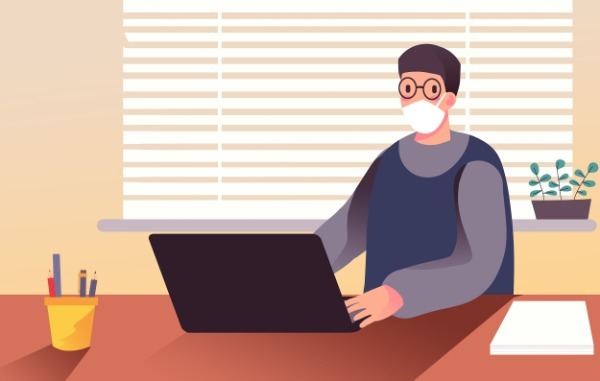COVID-19 prevention tips on home quarantine
During the outbreak of the novel coronavirus pneumonia, the Chinese Center for Disease Control and Prevention (CCDCP) has published a list of epidemic prevention tips to guide people on how to protect themselves when under home quarantine. The following notice is based on the CCDCP tips. To ensure you remain in good health, please check it out and inform your friends and families. Take care and be safe.

[Photo/VCG]
Prevention at home
1. Reduce outdoor activities as far as possible. Avoid going to crowded places such as shopping malls, movie theaters, railway stations, and airports.
2. Make sure you have a fever thermometer, masks and disinfectant at home.
3. Keep your hands clean at all times. Before meals and after using the toilet, wash your hands with running water and soap, or use an alcohol-based hand sanitizer. When you are not sure whether your hands are clean, avoid touching your mouth, nose and eyes. Cover your mouth and nose with a tissue when you cough or sneeze.
4. Make sure that indoor rooms have good airflow and a comfortable temperature. In general, it's not necessary to sterilizethe home unless you have had visitors who have been to epidemic-stricken areas within two weeks or there is a suspected or confirmed patient at your home. If sterilization is needed, please use chlorhexidine or alcohol hand disinfectant to clean your hands; use alcohol hand disinfectant to wipe small electronic devices like mobile phones (for safety's sake, turn off the devices before cleaning); spray chlorine disinfectant on the floor, tables and bathroom and steam dinner ware to sterilize.
5. Maintain balanced nutrition; eat a light and healthy meal. Engage in moderate-intensity exercise and have adequate sleep.
6. Avoid visits from friends and relatives; avoid close contact with people who have flu or cold-like symptoms and people who have been to epidemic-stricken areas within two weeks of their return.
Self-health monitoring and management
1. Measure the daily body temperatures of you and your family members, and monitor respiratory tract infection symptoms.
2. If you have a stuffy nose or sore throat but don't have a travel and residence history or a recent history of close contact with patients who have been in badly epidemic-stricken areas within the last 14 days, you can stay at home if don't have a fever. You can seek medical advice from an online hospital.
3. If you have had a history of travel with, residence with, or close contact with a patient with confirmed novel coronavirus infection within the last 14 days, medical observation should be conducted at home or in designated places as required.
4. If typical symptoms of coronavirus pneumonia arise, such as fever, dry cough, sore throat, oppression in chest, breathing difficulties, weakness, nausea and vomiting, diarrhea, conjunctivitis or muscle aches, please report to local community management staff and under their guidance go to a designated hospital for troubleshooting, diagnosis and treatment.
Notes for going outdoors for medical treatment
1. Please choose the nearest medical institution with the fewest daily outpatient visits. Necessary and urgent medical examinations and medical procedures should be taken first, and appointments and preparations should be made in advance of the visit. You should become familiar with the layout of the hospital departments and the procedures of the outpatient ward, and visiting time should be reduced as much as possible.And do a good job of protecting yourself during the whole procedure!
2. On the way to the hospital, as well as in the hospital, you should wear surgical masks or N95 medical masks at all times. Use hand sanitizer or disinfection wipes to maintain hand hygiene. When on the road or in the hospital, keep as much distance as possible (at least one meter) from one another.
3. Avoid taking public transportation when you go out for medical treatment. You can choose to take a taxi or drive your own If necessary, open the windows to ventilate the car.
4. After touching hospital door handles, curtains, doctors' uniforms and other hospital articles, use hand disinfectant as soon as possible. Do not touch your mouth, nose or eyes before you disinfect.
5. After returning home, outdoor masks should be handled properly. Change clothes, wash hands, clean face and other exposed parts. Clothes should be cleaned and disinfected as soon as possible and coats should be hung in a well-ventilated place.
6. Please let your employer, school or community authorities know your ongoing medical condition.



